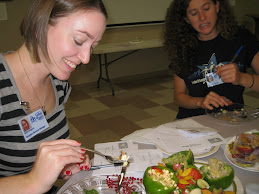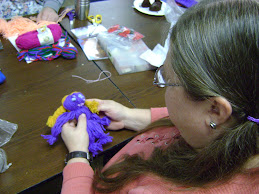Many of us are aware of the fact that we need to eat plenty of fresh fruit and vegetables in our diet so that we stay healthy and feel well, but, if we’re totally honest, we probably don’t manage it nearly as often as we should. A lot of the time, relying on processed foods, ready meals or snacks just feels as though it is easier. However, because of this, we are running the risk of making ourselves sick or increasingly unhealthy over time. The benefits of eating fresh produce are many and varied. Here’s the low down on why.
Why are fruit and vegetables so good for us?
A diet that is rich in fruits and vegetables is one that, in the long term, results in a reduced risk of heart disease, cancer, stroke, diabetes and problems with blood pressure and weight. On an everyday level, eating a good range of fresh food helps our digestion become regular, our blood sugars stable and helps prevent us from snacking on highly sugary, fatty foods which are bad for us.
Very often, a diet which relies heavily on processed foods with little in the way of anything fresh in it can make you feel tired and lethargic. Processed foods are designed to be initially filling as they are loaded with fat, salt and sugar, which give an initial burst of energy, followed by a slump. A diet which includes plenty of fresh fruit and vegetables provides us with slow release energy, keeps us filled up and energized for longer and makes us generally feel well and able to cope with what life throws at us.
A kaleidoscope of color
Fresh fruit and vegetables should, ideally make up half of every meal we eat. A good guide to seeing how this works is called the healthy eating plate, which shows how we should organize our meal times every day. Ideally, the fruits and vegetables should be eaten in conjunction with lean protein such as skinless chicken, fish or a small portion of red meat with the fat trimmed, plus some slow release carbohydrates such as brown rice, pasta or a baked potato.
How to eat more fresh fruit and vegetables
Some people wonder how they can possibly incorporate fresh food into their diets, or they simply worry they won’t like the taste. But it really is easy to do and there are many different ways of preparing fruits and vegetables which can make them more palatable and easier to eat!
Remember that tinned, frozen and dried fruits and vegetables also count and, in many ways, are just as good as the fresh stuff, but should not be used as a replacement. Things like frozen peas, French beans or bags of mixed vegetables count with a main meal, as would tins of peaches, apricots or cherries that could be baked and incorporated into a side dish.
Fresh fruit juice counts too, a glass of orange or grapefruit juice to accompany breakfast (or any meal) would be a great start to the day. Make sure to check the label and drink beverages that are 100% juice. As a snack, think about eating grapes or even something like raisins or banana chips. They really do taste like treats, but are so good for us.
Many fruits and vegetables are such attractive colors and we should be aiming to include as wide a variety of these into our diets as possible. Foods like dark, leafy cabbages, rich red tomatoes and green, red and yellow peppers are bursting with vitamins and minerals that are essential to us. These can be stir fried simply with onions and served as a side dish to a main meal.
Fresh fruit can be served simply, as it is, for dessert after a meal which is very often when the craving for something sweet kicks in. A ripe, juicy peach can feel like a real sweet treat.
Fresh food for everyone
Eating a good, balanced diet, rich in fresh food is not just good for adults and older people, but is vitally important for kids who are growing and developing and need all the nutrients possible for optimum health. Children who are of nursery and school age need to eat well to help them fight off common illnesses like colds or stomach flu that everyone can catch from time to time. Eating fresh food will bolster a youngsters immunity to illness and, if they do fall ill, help them recover quickly.
Adults can help cut their risks of developing serious illnesses now and in later life by upping their intakes of fresh foods and it’s never too late to start. For more advice, you can look at the following links to fresh food resources here on good nutrition and eating well.
Submitted by Lily Bernard, community contributor









No comments:
Post a Comment